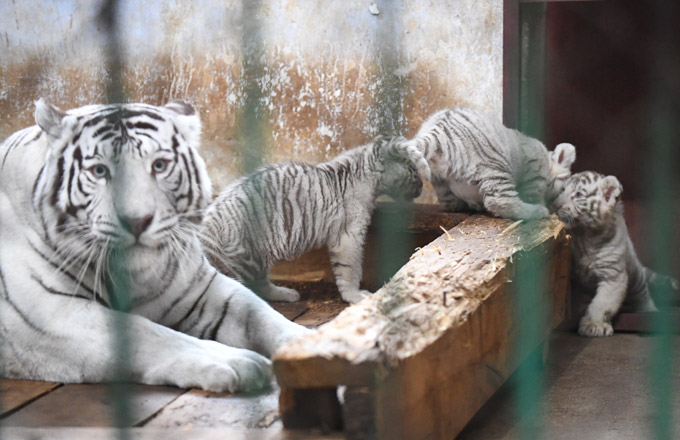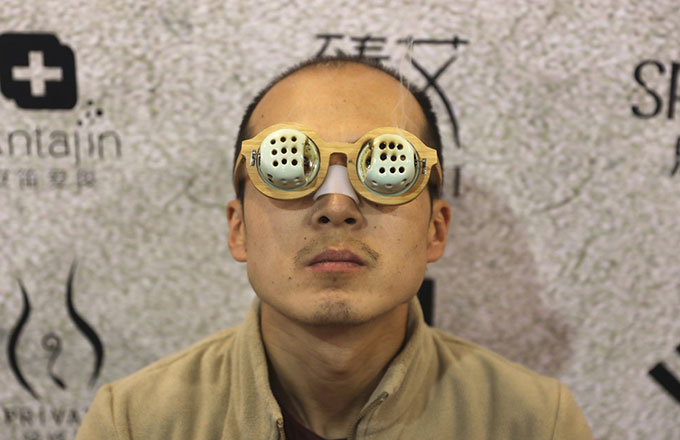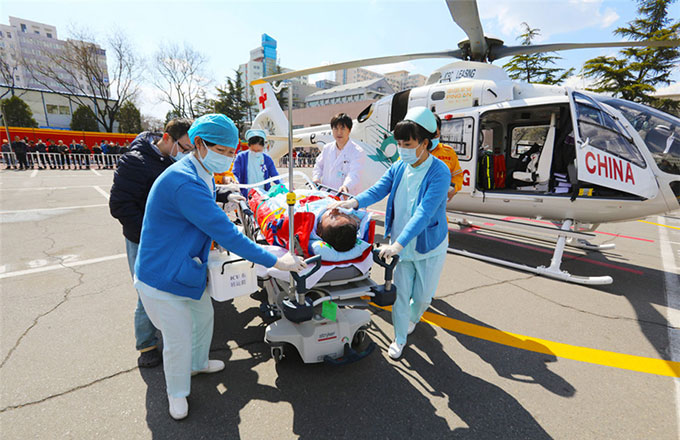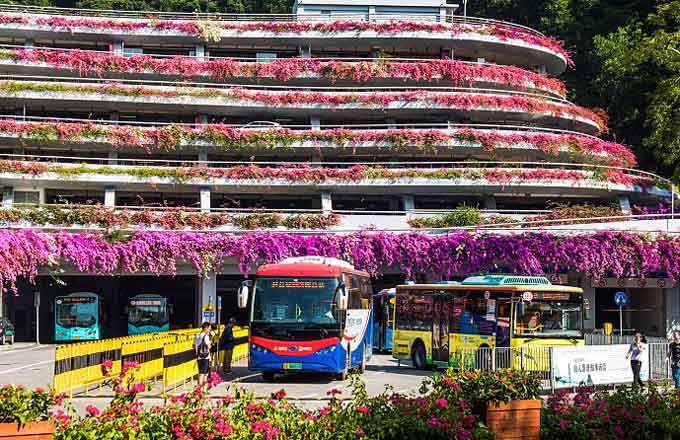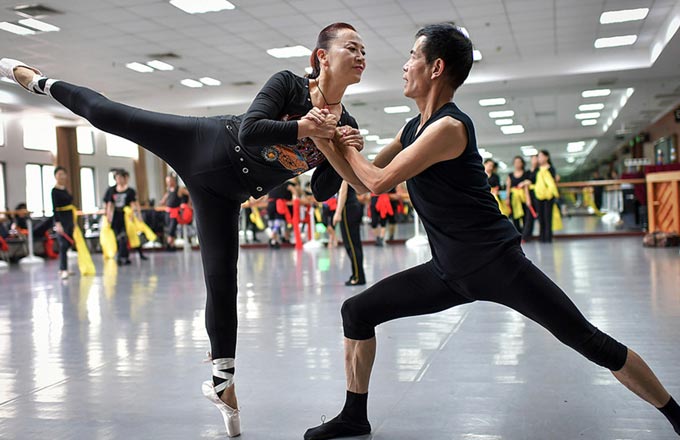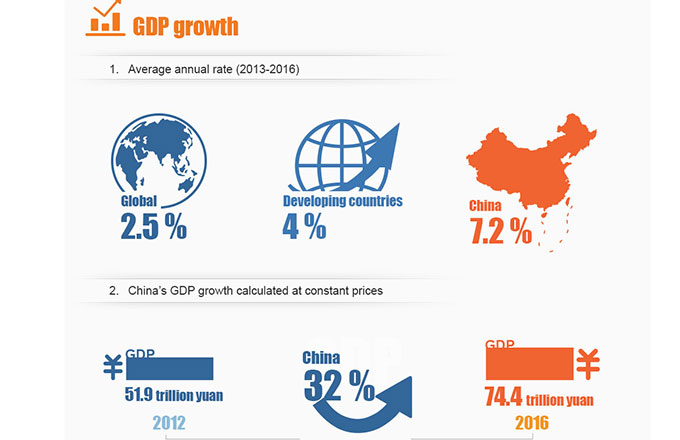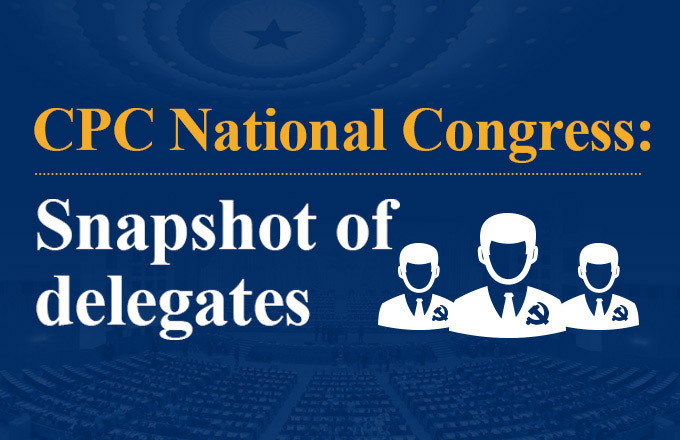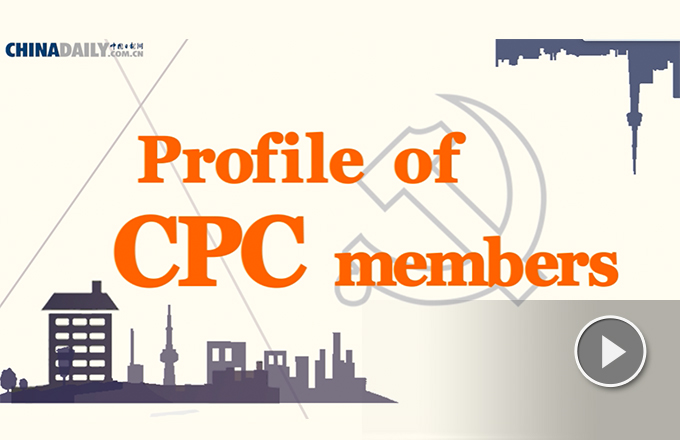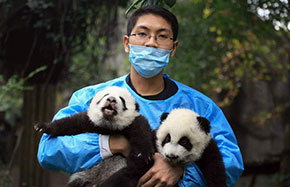Party fulfills promises to the people
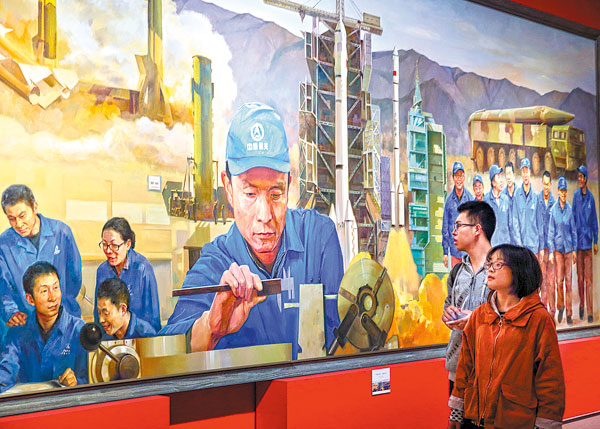 |
|
An exhibition celebrating the upcoming 19th National Congress of the Communist Party of China is admired by visitors at the National Museum on Thursday. The painting shows Xu Liping and his team of technicians processing propellant for the nation's ballistic missiles. WANG JING / CHINA DAILY |
Xi, while praising progress of past five years, warns of complacency
When looking back over the past five years, changes in all aspects of Chinese society have occurred in such a gradual, steady manner that sometimes they may not be so conspicuous.
But the upcoming 19th National Congress of the Communist Party of China, which starts on Wednesday, offers a chance to review what the nation has achieved under the leadership of the Party and General Secretary Xi Jinping.
At the congress, Xi, also president of China, is expected to deliver a report on the committee's work in the past five years and to present the future direction of the Party and country.
"Our people have an ardent love for life. They desire better education, stable jobs, higher income, reliable social security, trustworthy healthcare, improved housing conditions and a nicer environment. They want their children to be healthy, to have good jobs and to lead better lives. The Party will strive to meet their wishes," Xi promised on Nov 15, 2012, when he was elected top Party leader.
The Party and Xi himself have honored these pledges by maintaining China on a correct and rapid development track.
"We have resolved a great number of tough problems the Party had wished to resolve but had been unable to do so. We have realized many grand projects the Party had aspired to undertake but had seen no completion," the general secretary said at a key Party meeting on July 26.
The achievements have been hard won. The Party and its members, numbering more than 89 million, constantly work to make sure the people have a better life and China sees a great rejuvenation.
Happier and healthier
Groups of people exercising outdoors at night continue to swell in Chinese cities. This is, to a great extent, because the air is cleaner. In 2016, average concentrations of PM2.5 — tiny, harmful particulate matter — fell by at least 30 percent in major cities compared with 2013, the Ministry of Environmental Protection said.
Water quality in lakes and rivers and soil conditions are improving, with grasslands and forests continuing to expand.
People also have seen progress in other facets of life. Incomes keep rising and more jobs are being created; food safety is no longer a concern to many people; education is getting more support and is more accessible to every child regardless of background; almost all of the public are covered by social security, and they find it easier to get medical service at a lower cost; new housing is more affordable for low-income families.
A symbol of China's public infrastructure, railway networks — especially high-speed lines — have been extended rapidly. The country has more than 22,000 kilometers of high-speed lines, accounting for 60 percent of the world's total high-speed railways.
The progress flows from comprehensive reforms the Party has been implementing under Xi's instructions in the political, social, economic, cultural and military spheres.
One of the most remarkable advances is taking place in rural areas. Nearly 70 million people in underdeveloped regions, mostly in the northwest and southwest, have been lifted out of poverty.
Poverty alleviation is a top priority on the Party's agenda. Xi has visited all of the 14 regions with high concentrations of the poor since he was sworn in five years ago, and the Party's central leadership has made a solemn pledge to eliminate poverty in China by the end of 2020.
To make sure that reforms stay on track and goals are achieved, the Party and Xi also are striving to get rid of two outstanding hindrances — corruption and bureaucracy.
In the past five years, over 280 officials directly under the management of the CPC Central Committee's organization department, most at or above ministerial level, were deprived of their titles, given internal punishment or sent to prison for graft or other misconduct. They included former senior leaders Zhou Yongkang and Ling Jihua as well as former military commanders Guo Boxiong and Xu Caihou.
Stronger and mightier
Xi puts great importance on innovation in science and technology, emphasizing that it determines the further growth of the economy and even the future of the nation.
In the past five years, the country launched two manned space missions, with the most recent lasting over a month. Astronauts conducted dozens of scientific experiments inside the space laboratories. Scientists sent an exploratory rover to the moon and are preparing for a mission that will bring lunar samples back to Earth. They are also planning robotic explorations of Mars and Jupiter.
In the field of supercomputing, China's Sunway TaihuLight is the world's fastest system, capable of performing 93 quadrillion calculations per second.
The nation's aircraft designers have built the C919, a large, advanced jetliner that represents their aspiration to compete with Boeing and Airbus in the most sophisticated industrial field, airliner production.
In the military sphere, the People's Liberation Army is undergoing the biggest and deepest overhaul in decades.
Xi, who is also chairman of the Central Military Commission, is personally directing the far-reaching reform, which aims to make the PLA stronger, more integrated and more flexible so it will always be able to win modern wars.
The senior governing bodies of the world's largest military have been reshuffled — including the Central Military Commission — to optimize the command chain. Regional command systems were reorganized to boost joint combat ability. Group armies and institutions were merged to improve efficiency, and new high-technology units were set up to prepare for nontraditional fields such as cyberspace. Soldiers now spend more time in combat training and live-fire exercises.
The PLA, benefiting from strengthened efforts in research and development, has added some of the world's top weaponry, including the J-20 stealth fighter jet and DF-21D anti-ship ballistic missile.
Farsighted, sober-minded
While Xi has praised the Party's advances, he also is fully aware of obstacles and challenges. The president often tells officials to remain sober-minded and to understand unsolved difficulties.
Speaking at the July 26 Party meeting, Xi asked officials to keep in mind that "China is still in the primary stage of socialism and there still are many challenges and difficulties in the way ahead", adding that they should always maintain a sense of crisis.
Yan Shuhan, a researcher of socialist systems at the CPC Central Committee Party School, said as the Party continues to fulfill its goals, problems and unexpected difficulties may continue to emerge.
"Therefore, Xi's reminding officials to be aware of challenges and difficulties is necessary and important," he said. "Officials mustn't become complacent about existing accomplishments and need to go on studying new things and new problems."
Professor Tao Wenzhao, a researcher on socialism with Chinese characteristics at Renmin University of China, said one of the reasons the Party has been so successful is that it has always been aware of its circumstances.
"Officials must always take disadvantages and the likelihood of unexpected situations into consideration. ... This is crucial to whether the Party can meet its goals," Tao said.




